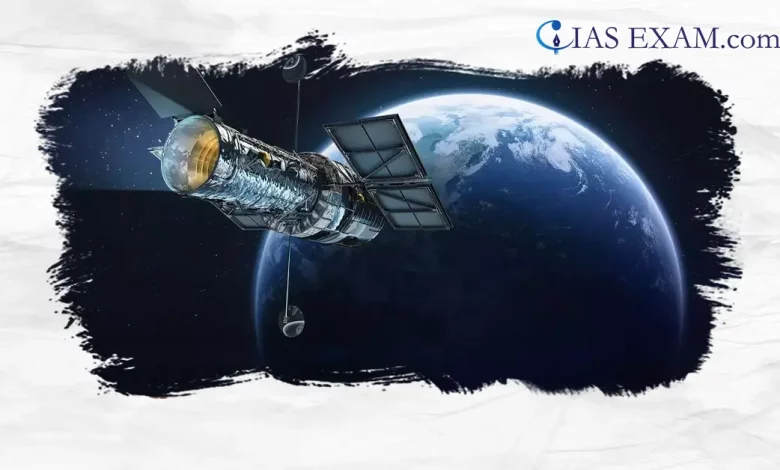Daily Current Affairs for UPSC
Policy regarding Foreign Direct Investment in the space sector
Syllabus: Economy[GS Paper-3]

Context:
The Union Cabinet, led by Prime Minister Narendra Modi, has approved changes to the Foreign Direct Investment (FDI) policy for the space sector.
Key Points:
- The satellite sub-sector in India has been separated into three activities, each with specific restrictions on foreign investment.
- The Indian Space Policy 2023 has been implemented to increase private participation in the space sector.
- This reform in the FDI policy will improve the business environment and attract more foreign investment, leading to economic growth and job creation.
Foreign Direct Investment:
- Foreign Direct Investment (FDI) is the process of information for residents of a given country to buy assets in another country in order to be the owning company.
- There is a difference between the foreign portfolio investment (FPI) and the Foreign Direct Investment (FDI) where the foreign entity buys the stocks and bonds and has no control over them.
- FDI means foreign capital in which a foreign investor participates such as equity capital, reinvested earnings, and inter-firm loans.
- Equity capital is when an investor acquires the shares of a foreign company, reinvested earnings are the investor’s share of profits that are not distributed as dividends, and the intra-company loan is borrowing and lending between the investor and its affiliates.
Role of FDI in Space sector:
- According to the current FDI policy, approval from the government is required for foreign investment in the establishment and operation of Satellites.
- However, the amended policy now allows for 100% FDI in the space sector.
- This change is intended to encourage potential investors to invest in Indian space companies.
Changes in policies regarding foreign direct investment (FDI) in the space sector:
- The proposed reforms aim to make the FDI policy in the space sector more flexible by allowing foreign investment in satellites, launch vehicles, spaceports, and manufacturing of space-related components.
- These changes are intended to attract investors to invest in Indian space companies.
The different activities included in the updated policy have specific entry routes:
- Upto 74% under Automatic route: The majority of activities related to the manufacturing and operation of satellites, satellite data products, and ground and user segments are controlled by the government, accounting for over 74%.
- Upto 49% under Automatic route: Launch vehicles and their systems, as well as the establishment of spaceports for spacecraft launches and landings, are primarily controlled by the government when they exceed 49% ownership.
- Upto 100% under Automatic route: The production of parts and systems for satellites, as well as the ground and user segments.
Importance of foreign direct investment (FDI) in Space sector:
- The space sector in India is turning towards the participation of private players and creation of networks for Indian companies in global value chains.
- Thus, this motion capitalises on the commercial utilisation of space-related technologies and encourages more business participation in the sector.
- The popularity of India in the successful completion of space missions is due to its reputation of reliable and cost-effective space solutions.
- The integration of those Indian Companies into global value chains will let them get a chance to absorb the latest technology, expand their businesses and capture large parts of the global markets.
- Moreover, the government’s “Make In India” policy will be refined since companies will be able to set up their manufacturing plants within the country.
- Moreover, the new FDI laws will help in reducing the cost of doing business in India, thus, inviting more foreign investment, which in turn will contribute to economic growth.
- In addition to that, the diversity of FDI in the space industry will facilitate the technology exchange and research inventions.
Conclusion:
India’s space industry is on the path to success, with major policy reforms, higher foreign investments, and a focus on involving the private sector. This will have a long-lasting impact on space exploration and technology, driving substantial growth and ushering in a new era of space exploration.
Source:PIB
UPSC Prelims Practice Question:
Q.Consider the following: (2021)
- Foreign currency convertible bonds
- Foreign institutional investment with certain conditions
- Global depository receipts
- Non-resident external deposits
Which of the above can be included in Foreign Direct Investments?
a. 1, 2 and 3
b. 3 only
c. 2 and 4
c. 1 and 4
Ans: “a”





.png)



